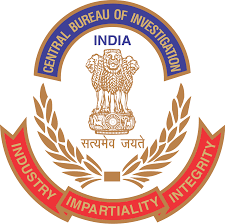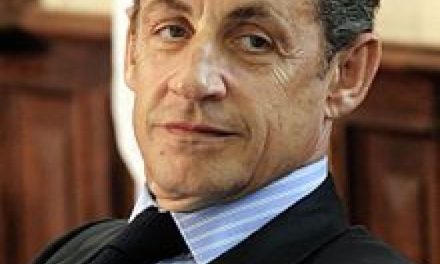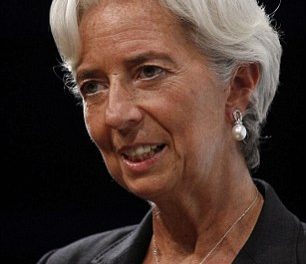3 December 2018
Hell broke loose when The Central Bureau of Investigation (CBI) director Alok Verma tried to arrest his deputy, special director Rakesh Asthana on charges of taking bribes. Rakesh Asthana in turn alleged Verma of taking bribes. Prime Minister’s Office intervened and put both of them on compulsory leave and appointed an interim director. It is argued that the prime minister’s office has no powers to remove the CBI director and that it can only be done by a committee consisting of Prime Minister (as chairperson), leader of opposition and Chief Justice of India or a Supreme Court Judge recommended by the Chief Justice. Verma has filed charge in the supreme court that he cannot be removed from post until his tenure ends in January. Asthana has filed petition requesting court protection from arrest by CBI and filed charges against Verma. Attorney general argued that the government had not removed either Verma or Asthana from their post but has only sent them on temporary leave. The supreme court decision is awaited.
The Congress Party leader Rahul Gandhi claimed that Prime Minister removed Verma from his post because he was investigating corruption in the Rafale deal made by the Prime Minister.
CBI is the official body to investigate corruption cases. Director of the CBI is appointed by a committee consisting of Prime Minister (as chairperson), leader of opposition and Chief Justice of India or a Supreme Court Judge recommended by the Chief Justice. When making recommendations, the committee considers the views of the outgoing director. The appointment of the director by this high-powered committee is to ensure independence of CBI.
It gets confusing because CBI is under administrative control of Department of Personnel and Training (DoPT), which means that, the powers to appoint, transfer, suspend CBI officers lie with DoPT. Independence of CBI is diluted by this administrative control.
The High Courts and the Supreme Court have the jurisdiction to order a CBI investigation into an offence alleged to have been committed in a state without the state’s consent. There is no conflict in this provision because of the independence and superiority of judiciary is well respected in India.
Central Vigilance Commission (CVC) has supervisory powers over CBI though it cannot call for any file from CBI or to direct CBI to investigate any case in a particular manner. This provision does dilute the independence of CBI.
Corruption investigations against government officials can proceed only after the government permits them. This is another setback for CBI to investigate corruption relating to public officials. Advocate Prashant Bhushan had argued against this provision to a bench of Chief Justice Ranjan Gogoi and Justice Ajay Rasto. The bench said it saw merit in the argument and hence has issued notice to the Centre seeking its reply.
The CBI director has a two-year term.
Sharma, a Gujarat-cadre IPS officer, was appointed as the joint director (policy) in March after Verma took over as director in February. AK Sharma passed evidence against CBI special director Rakesh Asthana, in a sealed cover to the Delhi High Court. The evidence constitutes intercepted telephonic/WhatsApp conversation between the co-accused and their associates.
Manish Kumar Sinha, a senior CBI officer filed a petition before the SC in which he alleges interference of National Security Advisor (NSA) Doval in the affairs of CBI. Sinha alleges that two days after CBI registered a FIR in which it named its Special Director Rakesh Asthana on charges of accepting bribes, Director CBI briefed Doval about the case and informed him that Asthana’s name figured in the FIR. The same evening the NSA Duval cautioned Asthana that he was in trouble. The telephone conversation between Duval and Asthana was recorded. Asthana pleaded with Doval to ensure that he was not arrested. Special Secretary at Research and Analysis Wing (RAW ), Samant Goel, Dubai-based businessman Somesh Prasad, Prasad’s father, retired RAW officer Dineshwar Prasad were also tipped off by Duval. When the Investigating Officer, DSP AK Bassi, sought Director CBI’s permission to search Asthana’s office and residence and seize his mobile phones, the Director told him and Sinha that he was not getting clearance from the NSA. National Herald reported.
NSA Doval is not acting on his own accord, but he is just carrying out the orders from the Prime Minister’s Office (PMO). He is PM Modi’s Mr. Fix-it, who fixes things that are not broken. As Rahul Gandhi has claimed, Asthana is Mr. Modi’d blue-eyed boy. He was planted in the CBI to check Alok Verma from digging into the Rafale deal. Doval must protect him. Modi is keeping astounding silence over the sordid Rafale deal. People have not yet lost faith in him. If he had good reason for doing what he did in the deal and comes clean with it, people will accept it. After all they endured his crucifying demonetisation. To make matters worse, Asthana, hailing from Modi’s state, also happened to be notoriously corrupt.
Manish Kumar Sinha was also part of the CBI team which was investigating the alleged corruption case against Asthana and others pertaining to meat exporter Moin Qureshi. Qureshi was laundering money in Dubai, the UK, Paris, Italy and US. He is also a conduit for paying bribes to top government officials and politicians. Qureshi’s case lies in the centre of the clash between CBI Director Alok Verma and his deputy Rakesh Asthana. It was alleged that Asthana wanted to arrest Qureshi but Verma did not approve the arrest. Verma alleged that Asthana demanded a bribe from Satish Babu Sana, an associate of Qureshi.
There are many lapses on the part of CBI. In Bofors scandal which tainted Rajiv Gandhi’s government, CBI quietly released a frozen account of an accused Italian businessman.
In this case of Priyadarshini Mattoo murder, the accused Santosh Kumar Singh was let free as he was the son of a high-ranking officer in the Indian Police Service. The judge called this a deliberate inaction by the investigating team. In the end the High Court found Singh guilty of rape and murder and sentenced him to death.
The Supreme Court cited the CBI many times for its tardiness in the investigations in respect of 2G spectrum case. Only after the court began monitoring its investigations, the high-profile arrests were made. Court have commented in Noida double murder case that CBI has tampered with evidences and tutored witnesses.
Successive governments have manipulated and abused CBI to harass and punish the members of the opposition parties. CBI lacks a clean image, regardless of who oversees it. In 1993, journalist Vineet Narain filed a Public Interest Litigation (Vineet Narain vs Union of India) highlighting the failure of CBI to probe and secure conviction of the culprits in what was known as the ‘Jain hawala scandal’. In this case illegal funds were used to finance terrorist organisations such as Hizbul Mujahideen.
That case also involved alleged payments to several politicians and bureaucrats from a dubious funding source. Among the accused were senior politicians like Bharatiya Janata Party leader Lal Kishenchand Advani, the late Congress leader Vidya Charan Shukla and others, but the case failed in court and none of the political leaders was found guilty, due to the haphazard manner with which the investigations carried out by CBI.
It has also been criticized for the long delays in the investigation prominent politicians, such as P. V. Narasimha Rao, Jayalalithaa, Lalu Prasad Yadav, Mayawati and Mulayam Singh Yadav; this tardiness led to their acquittal or non-prosecution.
It is necessary to reform CBI for it to gain its credibility and play the role of an impartial investigator without any political interferences. It is hoped that the Supreme Court will now give necessary directives that would set CBI in the correct path.
Related Posts:
Government move against CBI officials
CBI corruption















